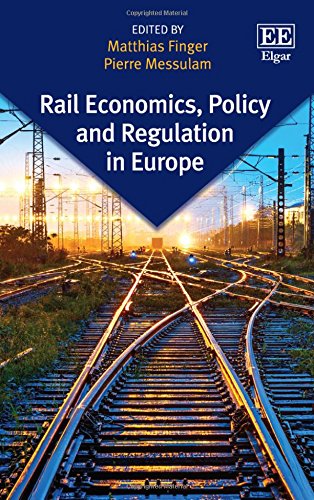
'Railways - they are one of the most powerful and symbolic modes of transport. They are especially important for Europe and for many decades the EU has tried to facilitate their development. This book provides a lot of good analysis of the problems of contemporary European railways. It also contains many interesting proposals on how to solve these problems. Highly recommended reading for all who are interested in transport and logistics.'
- Siim Kallas, former Vice-President of the European Commission, Commissioner for Transport 2010-2014
The European railway sector has gone through profound, yet mostly institutional, changes over the past 20 years, owing mainly to the initiatives of the European Commission. This book constitutes a first systematic account and assessment of the recent transformations of the European railway sector, whilst also covering the main segments such as passenger transport, high speed and freight.
The expert contributors have been charting these developments over the past five years. They provide a critical analysis of relevant, yet contentious, issues such as competition, unbundling, regulation, access charging, standards and interoperability, and public-private partnerships.
Practically-minded academics, as well as academically-oriented practitioners, interested in the railway sector and other public transport sectors will find this book to be a crucial read. It will also be of use to postgraduates studying infrastructure economics, policy and regulation.
Contributors: N. Baron, A.S. Bergantino, J. Dehornoy, M. Dillon, N. Fearnley, M.Finger, R. Gevaers, T. Holvad, A. Jan, N. Keogh, G. Knieps, J. Maes, A. Meaney, P. Messulam, F. Mizutani, C. Nash, S. Olsen, J. Runde Krogstad, M. Sanchez-Borras, D. van de Velde, E. Van de Voorde, T. Vanelslander . CLICK HERE TO DOWNLOAD THIS BOOK FOR FREE